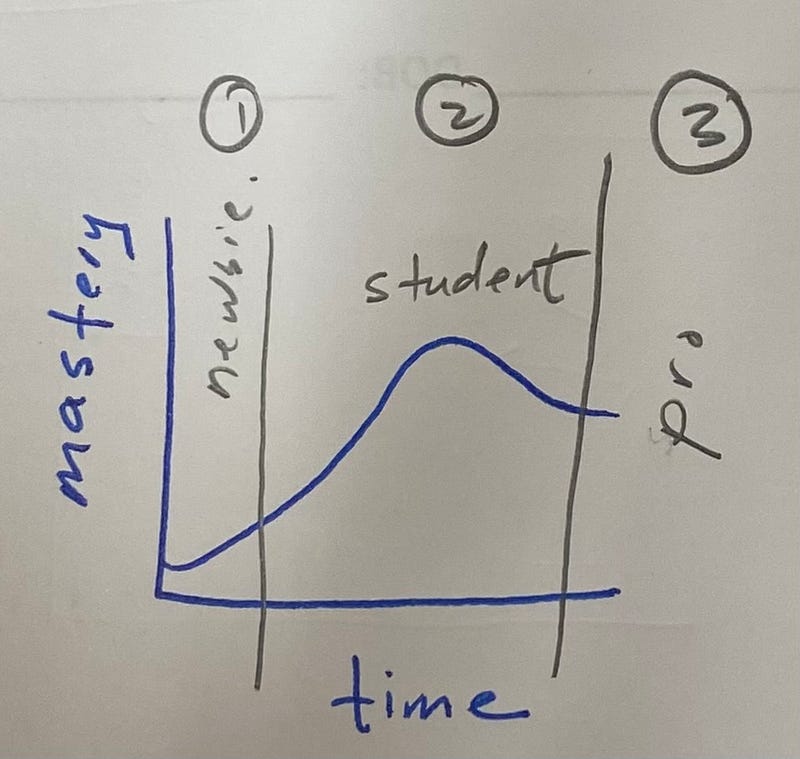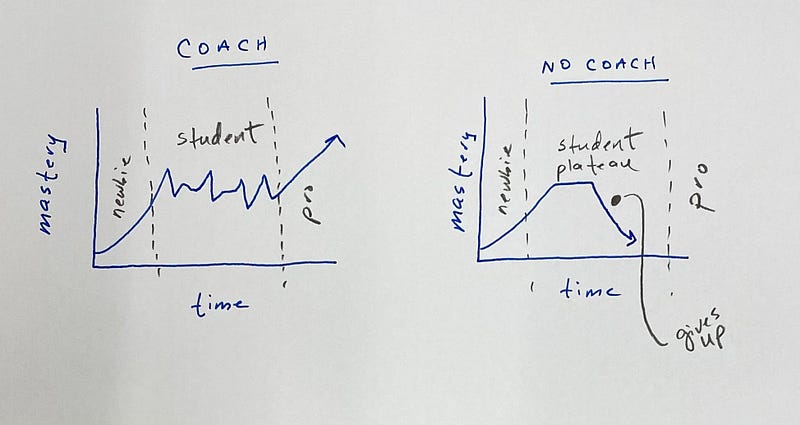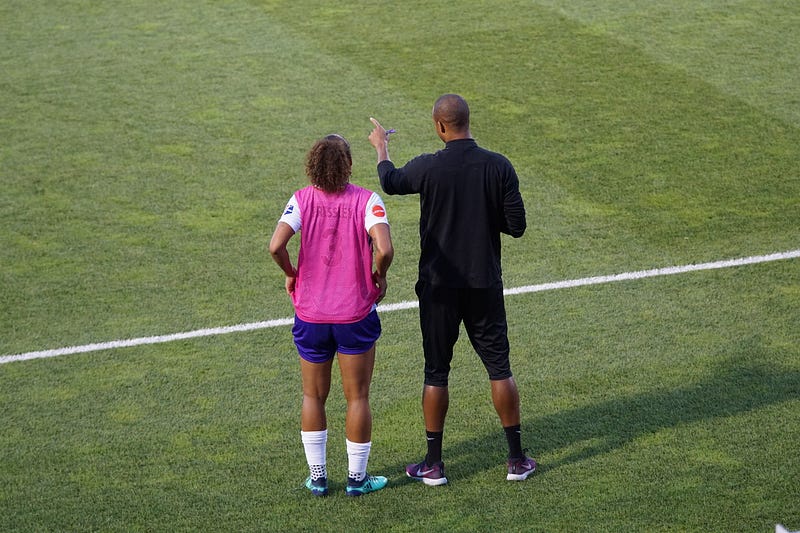Mastering Skills: Why Everyone Needs a Coach on Their Journey
Written on
The Journey of Skill Development
In a TED talk titled "Want to Get Great at Something: Get A Coach," Dr. Atul Gawande illustrates the profound impact a mentor can have on our performance. By sharing his experiences in the operating room, he reveals how the guidance of a coach significantly improved his outcomes later in his career. This concept got me reflecting on the necessity of coaching for professionals at any stage of their skill development journey.
Coaching and Self-Assessment
There are compelling reasons for us to refrain from self-evaluating our recorded performances or diagnosing our health issues. We tend to be biased, often misjudging our abilities or situations. Coaches provide an objective perspective, helping us align with reality without the emotional baggage of our past experiences. Simply put, the mastery of a skill can be understood through three distinct phases.
The Skill Mastery Curve
As we progress in acquiring a new skill, we follow a mastery curve characterized by three main phases. Initially, beginners experience rapid improvement driven by motivation and progress. This is followed by a challenging phase where the learner navigates obstacles before ultimately reaching a level of expertise that is rare.

The Role of Coaches in Different Phases
While a coach is beneficial throughout all three phases of learning, their role becomes especially crucial during the student phase. This is often the longest stage, where individuals may hesitate to seek help due to external expectations. Many professionals transition rapidly from being novices to positions of authority without fully mastering the intricacies of their roles.
It is essential to recognize that, even after moving past the beginner phase, individuals may still require coaching to maximize their potential. The distinction between a student with a coach and one without can be substantial.

Consequences of Coaching
A student who forgoes coaching may become discouraged due to a lack of visible progress and may feel isolated in their learning journey. Without guidance, they might miss opportunities for growth and fail to recognize their achievements or the strategies needed to overcome challenges.
In contrast, a coached student benefits from an impartial observer who facilitates small adjustments before they escalate into larger issues. When faced with setbacks, the coach can draw on past experiences to help reframe the learner's perspective, ultimately leading to continued progress.

Pharmacists as Coaches
Whether we acknowledge it or not, we are often viewed as experts in our fields. Our insights and actions can influence change, making it vital for us to offer constructive feedback that guides our colleagues through their unique mastery paths. The collective growth of individuals contributes to the overall effectiveness of our teams.
So, who coaches the pharmacists? Effective coaches know the balance between encouragement and constructive criticism, helping us see solutions when we are otherwise blind to them.
Are you at a level where you could benefit from a coach? Pharmacists can seek coaching in various aspects of their practice, including staff management, business strategies, and personal wellness. If you're interested, simply fill out the contact form, and Jason will reach out to assist you.

Chapter 1: The Importance of Coaching
The first video, "DO THIS to impress your coach | 5 things," offers valuable insights on how to effectively engage with your coach and maximize the benefits of their guidance.
Chapter 2: Essential Qualities of an Effective Coach
The second video, "EP #054 | Powerful Attributes of an Effective Coach," highlights the crucial characteristics that make a coach truly impactful in the development of their students.